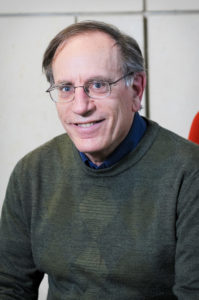Stanford’s Robert Weisberg on the January 6 Hearings and New Testimony

Congressional hearings into the January 6, 2021 storming of the U.S. Capitol continued on July 28, with new testimony by Cassidy Hutchinson, a former White House Aide. Here, Stanford Law School criminal law expert Robert Weisberg, discusses possible charges against former president Donald Trump.
Did yesterday’s testimony by Cassidy Hutchinson enhance the plausibility of criminal charges against former president Trump and members of his cabinet and circle?
Probably yes, but first we should see what the legal landscape looked like before yesterday.
Well, over the last few months, what charges seemed to have some basis in fact and law?
Let’s focus on federal statutes related to January 6. That is, put aside the pretty strong case under Georgia election fraud law that Trump solicited a crime when he urged Brad Raffensberger to “find” just enough votes to award Trump the state’s electoral votes. The federal criminal code, alas like most state codes in the U.S., is a mélange of overlapping, ill-coordinated, and often vague statutes, but to simplify let’s put things in two groupings.
First, Trump’s criminal liability for the physical acts at the Capitol, e.g., trespass, vandalism, assault, and the broader concept of riot (and maybe even physical attacks on Pence.) There have long been gaps in proof that Trump had the intent needed to be an accomplice to these or had communicated with the rioters so as to be a conspirator. And even if he had made encouraging exhortations about acts of political resistance in general, a prosecutor would be challenged to prove that he was instigating others to commit specific acts or that had actually caused, or, in prospect, was likely to cause these acts to occur imminently.
Second, there’s his liability for efforts to prevent the verification of the electoral votes delivered to Pence. The common view is that Pence had no choice but to perform the ministerial function, so any effort to stop him was illegal. But illegal under what law? The clearest one would be obstruction of a congressional function under 18 U.S.C. 1505 or some species of impeding a federal official in the lawful performance of that official’s duties. The nuclear version of such obstruction would be seditious conspiracy, i.e., preventing the legally certified vote count equals overthrowing the government.
And how challenging would it be to make that case?
The obstacle here is that proving these crimes requires delving into the exquisite nuances of culpable mental states that fall under the vague and multiform principle of “criminal intent.” And the protectoral burden is heavy here especially when the statute uses Congress’s hobbyhorse adverb “corruptly.” The public deserves to be spared listening to law professors indulgence in these nuances, so let’s just put it this way:
No matter how unreasonable or indeed ludicrous the notion that Pence had any choice here—or that there was any legal basis for bringing in “alternate lectors”—Trump did not act corruptly if he sincerely, in the subjective sense, believed such hogwash to be true. This issue depends a lot on what was said to Trump by his aides or allies. John Eastman may be a looney outlier, but he is an educated lawyer, so could Trump point simply to Eastman’s advice? So, at the risk of insulting their client, Trump’s defense lawyer could now argue that either (a) Trump has such a bizarre view of law and government that his sincerity is plausible, or (b) that Trump is almost neurologically incapable of the baseline levels of cognition and mentation that the law presumes.
So what about yesterday?
First, Trump’s statements and antics make it somewhat more feasible for a prosecutor to connect the dots on complicity in the physical acts at the Capitol. His desire to get to the scene bespeaks intent to aid and abet, and his awareness of the rioters; weaponry is a big deal too. Oh, by the way, the facts are so bizarre as to generate some comic crimes such as destruction of government property—broken china, ketchup-stained walls—or maybe attempted reckless driving.
Second, while Trump’s fury might be read as helping the defense show his mind was too disordered to be “corrupt” in the legal sense, by Hutchinson’s account he was actually behaving very purposively and instrumentally. A jury might find that he was desperately trying to prevent the certification and, as Hutchinson recounts, he was especially desperate, because more and more of his aides were telling him that Pence had no legal choice.
What about the provocative final remarks by Cheney yesterday?
Yes, she suggested that there might be witness tampering. The threat that Trump “reads the transcripts” and that disloyalty has consequences suggests charges udder 18 USC 1512 against someone—maybe Trump. We will have to wait who might accept Cheney’s ominously subtle invitation to come forth.
Robert Weisberg is the Edwin E. Huddleson, Jr. Professor of Law and Faculty Co-Director of the Stanford Criminal Justice Center. His scholarship focuses on criminal law, criminal procedure, white collar crime, and sentencing policy.
